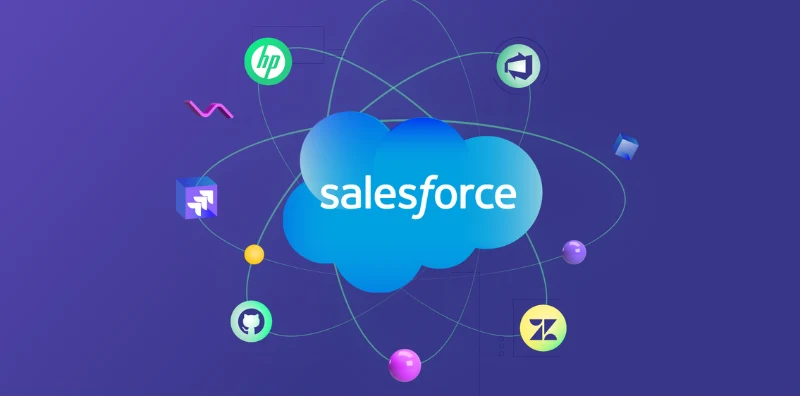
Salesforce has emerged as one of the most in-demand platforms in the global CRM space, driving innovation in sales, marketing, and customer service across industries. If you’re wondering how to start a career in Salesforce, this comprehensive guide will walk you through the key roles, essential skills, and growth opportunities available in the field. Whether you’re a recent graduate or a working professional considering a career switch, enrolling in a Salesforce Course in Hyderabad at FITA Academy can be a strategic first step toward entering the dynamic Salesforce ecosystem.
Why Choose a Career in Salesforce?
A career in Salesforce offers flexibility, job security, and competitive salaries. As more businesses transition to cloud-based systems, professionals with Salesforce expertise are becoming indispensable. According to industry reports, the Salesforce economy will create millions of jobs globally in the next few years, making it an ideal field for tech and non-tech individuals alike.
Additionally, Salesforce career advice often emphasizes the low entry barrier. Even without a technical background, you can begin learning and certify yourself through free platforms like Trailhead, which helps many understand how to get into Salesforce without formal education.
Key Salesforce Roles You Can Pursue
Enrolling in a Salesforce Course in Delhi is a great way to begin your journey, as it helps you understand the various roles within the Salesforce ecosystem an essential first step toward building a successful career in Salesforce. Here are some of the most prominent roles
1. Salesforce Administrator
Admins configure Salesforce platforms according to business needs, manage user access, create reports and dashboards, and maintain data quality.
2. Salesforce Developer
Developers write custom code (usually Apex and Visualforce) to create tailored solutions. They often work closely with admins and architects.
3. Salesforce Business Analyst
These professionals translate business requirements into technical solutions and work as a bridge between stakeholders and developers.
4. Salesforce Consultant
Consultants work for implementation partners or independently. They help clients configure and optimize their Salesforce instances based on industry needs.
5. Salesforce Architect
Architects design high-level technical solutions and frameworks. This is a senior role with deep expertise in multiple Salesforce products and integrations.
Essential Skills to Build a Career in Salesforce
To grow a career in Salesforce, both technical and soft skills are crucial. Here’s a breakdown:
Technical Skills:
- CRM Fundamentals: Understand how Salesforce helps businesses manage relationships.
- Salesforce Platform Basics: Learn standard objects like Leads, Contacts, and Opportunities.
- Data Management: Know how to import/export data and maintain its integrity.
- Automation Tools: Learn to use Process Builder, Flow, and Workflow Rules.
- Apex Programming & Visualforce (for developers): Essential for custom functionalities.
- Lightning Components: Useful for creating user-friendly, modern interfaces.
Soft Skills:
- Analytical Thinking: Crucial for roles like Business Analyst or Consultant.
- Communication: Must explain complex solutions in simple terms.
- Problem-Solving: Adapt and troubleshoot efficiently in real time.
Free learning resources like Trailhead are often recommended in Salesforce career advice circles as the best place to start.
Certifications: Your Ticket to Salesforce Opportunities
When exploring how to get into Salesforce, certifications play a crucial role in shaping your career path. These credentials not only validate your skills but also enhance your credibility, making you a strong candidate for global job opportunities. Enrolling in a Salesforce Course in Jaipur can be an excellent starting point, providing you with hands-on training and preparation for these certifications.
- Salesforce Administrator
- Platform App Builder
- Salesforce Developer (Platform I & II)
- Sales Cloud / Service Cloud Consultant
- Salesforce Architect Certifications
Most professionals start with the Administrator Certification, which lays a solid foundation for other roles. Adding certifications is a strong step to grow your career in Salesforce faster and more confidently.
How to Get Into Salesforce: A Step-by-Step Plan
Step 1: Learn the Basics
Start with free Salesforce training on Trailhead. It covers fundamentals and gives hands-on experience in a sandbox environment.
Step 2: Choose a Role Path
Decide whether you want to be an Admin, Developer, Consultant, or Analyst. Each path has different skill requirements and career trajectories.
Step 3: Earn Certifications
As discussed, certifications help build credibility. Prepare thoroughly and pass the relevant exams.
Step 4: Get Hands-On Experience
Build sample apps, volunteer for nonprofits using Salesforce, or work on internships. Experience is highly valued in Salesforce career advice.
Step 5: Build a Network
Join local Salesforce community groups, participate in webinars, and connect with professionals on LinkedIn.
Step 6: Apply for Jobs
Start with entry-level roles like Salesforce Administrator or Junior Consultant. These help you grow your career in Salesforce over time.
Salesforce Career Advice for Long-Term Growth
While certifications and experience can get you into the field, sustained success requires continuous learning. Here are some tips based on industry-standard Salesforce career advice:
- Stay Updated: Salesforce releases updates three times a year. Stay on top of these changes.
- Contribute to the Community: Help others through forums like the Trailblazer Community. It increases visibility and credibility.
- Explore Specializations: Learn about niche areas like CPQ, Field Service, or Marketing Cloud to expand your options.
- Develop Leadership Skills: With experience, move into roles like Salesforce Project Manager or Solution Architect.
- Aim for Architect Certifications: These are the highest-paying and most respected credentials in the ecosystem.
Starting a career in Salesforce is one of the smartest moves in today’s tech-driven job market, especially as Top Salesforce CRM Trends continue to shape the future of business technology. With its immense flexibility, diverse career paths, and global job opportunities, Salesforce stands out as a powerful platform for both newcomers and professionals looking to switch careers. By aligning with structured learning paths, pursuing certifications, and applying practical Salesforce career advice, you can build a strong foundation in this growing ecosystem.
Also check : what is Salesforce and how does it works
